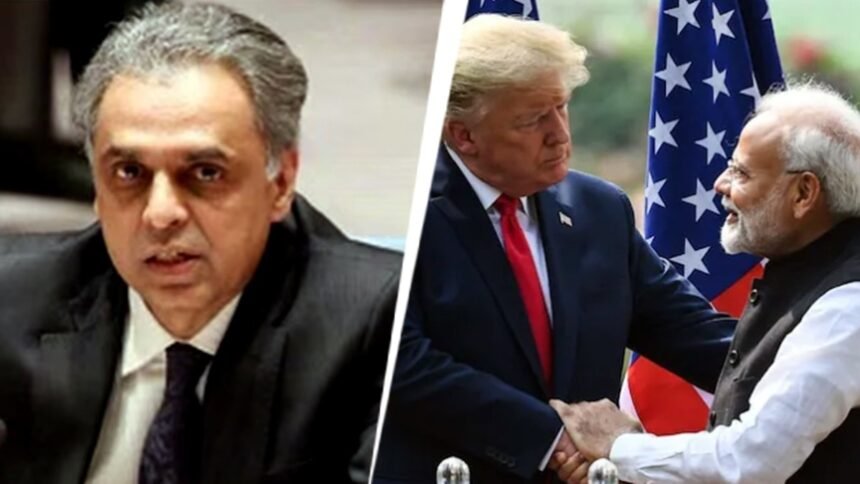Former Indian envoy to the United Nations Syed Akbaruddin said that US President-elect Trump’s personalized form of diplomacy may be beneficial to India.
“He (Trump) has never hidden his admiration for Prime Minister Modi. He considers Modi a friend and a strong leader. If this is the form of personalized diplomacy that Trump will take, then this will It will be effective for India Director Rahul Kanwar.
Trump secured a historic victory in the 2024 presidential election on Wednesday, defeating his Democratic opponent, Vice President Kamala Harris. The 78-year-old has now become the first former president to return to the White House in more than 130 years and the oldest man elected to the nation’s highest office.
Prime Minister Narendra Modi was among the first world leaders to congratulate his friend Trump on winning the high-stakes election. Prime Minister Modi also called the president-elect and called him a “wonderful man”.
During Wednesday night’s discussion, Akbaruddin also emphasized that India’s diplomatic establishment has a nearly 20-year history of responding to changes in US administrations.
He said past changes of government had been successful and each had achieved “long-term improvements in relations.”
“I don’t think the Indian diplomatic establishment is worried about who (Trump or Kamala Harris) will be elected. But having said that, I think there are some factors that make the Trump administration more popular than the Joe Biden administration. “Previous The envoy pointed out.
Asked about potential obstacles that the Indian government would have to contend with in working with the incoming Trump administration, Akbaruddin said, “Every time there is a change of government, there are always potential landmines.”
“The United States is a global power, it participates in global affairs and makes global decisions. In an interdependent world, sometimes these global decisions have consequences, intentionally or unintentionally,” he noted.
The former diplomat said if Trump starts making changes on certain issues, such as tariffs and trade globally, not just India, “that will have an impact on us.”
He emphasized: “Let us not forget that it was the Trump administration that canceled India’s Generalized System of Preferences (Generalized System of Preferences) benefits during the previous term.”
The U.S. Generalized System of Preferences program provides duty-free preferential treatment to 3,400 products from 131 designated beneficiary developing countries and regions. Washington revoked India’s GSP benefits in 2019.
Regarding the transactional approach to diplomacy, Akbaruddin said: “This may not be a challenge, but it is an unpredictable problem. Given the influence both the United States and India have, this problem is solvable.
“Trump or any other Republican administration in general is trying to focus on the convergence of interests rather than the alignment of values. When Eastern and Western societies interact, they are bound to have these differences in values.
He added: “The Trump administration is perhaps more focused on alignment of interests than alignment of values, which again works for India.”

